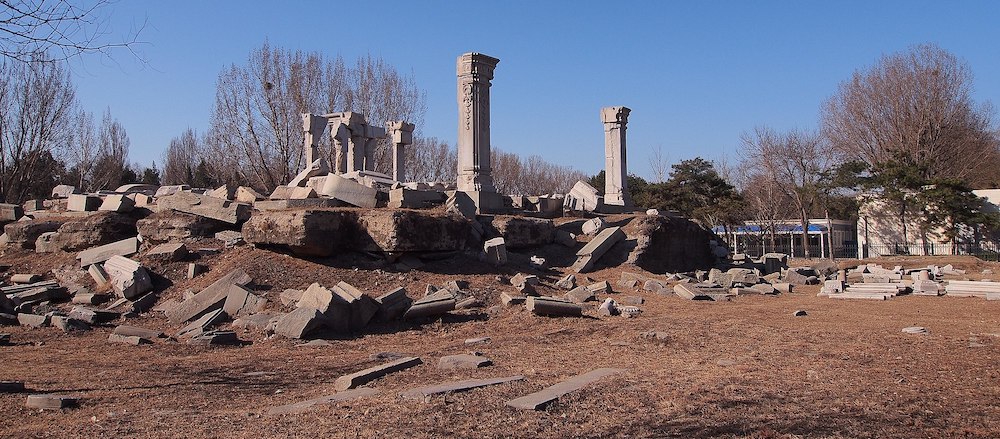The controversial cultural legacy of Thomas Bruce, 7th Earl of Elgin, is relatively famous: he looted (or legally acquired, depending on your view) priceless marbles from the Parthenon in Athens, marbles which now bear his name and reside in the British Museum. I didn’t realise, though, that his son James Bruce – the 8th Earl – has an arguably more controversial and certainly more destructive legacy.
Between 1840 and 1860 the British and French fought for the right to import opium into China, in what became known as the Opium Wars. In 1860, the Second Opium War was drawing to a close; the Chinese had been defeated militarily, and British and French troops had entered Beijing. In response to mistreatment of British prisoners, the 8th Earl – who was serving as High Commissioner – contemplated revenge. He wanted a way to punish the ruling Manchu regime without destabilising it, a symbolic gesture that would be felt hardest by the elites.
Elgin considered destroying the Forbidden City, but instead decided to raze the Yuanmingyuan, or Summer Palace. It was the home of the Qing Emperors, a sprawling 3.5 km² complex of landscaped gardens and palace buildings that contained thousands of priceless artworks and historical artefacts. 4,000 of Elgin’s troops spent four days systematically looting and burning it, killing 300 people in the process and either stealing or destroying an incalculably important part of Chinese history.

The later General Gordon was then a soldier in the Royal Engineers and participated in the destruction, writing:
“You can scarcely imagine the beauty and magnificence of the places we burnt. It made one’s heart sore to burn them; in fact, these places were so large, and we were so pressed for time, that we could not plunder them carefully. Quantities of gold ornaments were burnt, considered as brass. It was wretchedly demoralising work for an army.”